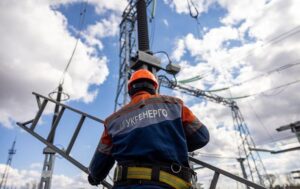
According to preliminary information, NPC Ukrenergo plans to impose electricity restrictions for the regions on Tuesday, August 27, followed by hourly blackouts throughout the day, DTEK reported on Telegram.
In particular, from 00:00 to 06:00, it is planned to apply three rounds of blackouts, from 06:00 to 11:00 – four, from 11:00 to 15:00 – three, from 15:00 to 21:00 – four, from 21:00 to 00:00 – three.
“There is a high probability of using light gray outage zones in the schedules,” the company said.
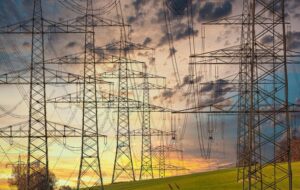
NPC Ukrenergo, together with Poland, is working to increase the technical capabilities and volumes of electricity supplies to Ukraine in autumn and winter, said Volodymyr Kudrytskyi, Chairman of the Board of the NPC.
“We continue to work not only on repairs and development of protection, but also on finding solutions to attract more electricity to Ukraine from Europe. In particular, we are actively working with the Polish side to increase the technical capabilities and volume of electricity supplies to Ukraine in the fall and winter. We are working on options to compensate for the deficit caused by Russian attacks,” he wrote on his Facebook page on Friday evening.
Kudrytsky noted that he would provide more details when agreements are reached.
He also emphasized that Ukrenergo has not imposed any restrictions on electricity consumption for almost a week now, as there is enough electricity in the system to meet all needs.
Also, according to him, the dispatch center does not plan to cut power this weekend. “This is an important relief for all Ukrainians, but I have to remind you that we have no right to relax: the damage to the power system is significant, and we still face challenges. The heat above 30 degrees may still return, and then the situation in the power system may change. Please follow our messages and those of your regional power distribution companies,” emphasized the CEO.

Volodymyr Kudrytskyi, Chairman of the Board of NPC Ukrenergo, links the statement to the National Anti-Corruption Bureau about his alleged criminal offense to the case of the company’s purchase of bulletproof vests at the beginning of Russia’s full-scale invasion of Ukraine.
“This is an old, dead case of bulletproof vests that the company purchased at the request of the National Guard in early March 2022. We found several hundred bulletproof vests of class 4 at a price of UAH 16.4 thousand including VAT. At that time, it was significantly lower than the prices at which others were buying,” Kudrytskyi said at a briefing at the Ukraine Media Center in Kyiv on Friday.
According to him, apart from Ukrenergo, there are no claims against anyone, and from time to time “nameless political analysts” revive the case: either by throwing it into the media space or by writing statements to have the NPC checked once again.
The company’s CEO added that he treats this as an attempt to create an information throw-in and believes that “the case has not had and will not have any prospects in law enforcement agencies or in courts.”
Kudrytskyi suggested that the reason for his discrediting as the head of the company may be the active involvement of Ukrenergo in international financing, which has exceeded EUR 1.5 billion since the beginning of the full-scale war.
“Alternatively, some people are not satisfied with the EUR 1.5 billion of financing we have attracted since the beginning of the war. Maybe there are other reasons. In my opinion, this is just white noise,” said the head of the system operator.
Answering Energoreforma’s question about the reaction of international partners to the information about a possible criminal offense, Kudrytskyi noted that there was none. “Western partners have not reacted in any way.
There is no need to make any judgments. Trust is determined not by words, but by facts, and our partners have entrusted us with EUR1.5 billion, which is several times or even ten times more than any other company,” he said.
At the same time, Kudrytskyi emphasized that each artificial media attack leads to additional difficulties in attracting much-needed additional financial resources for the power system.
“The people who do this pursue their own selfish interests and, most likely, corrupt interests, but ultimately harm the interests of the state,” summarized the CEO of Ukrenergo.
The High Anti-Corruption Court, by its ruling of July 17, 2024, ordered the authorized persons of the National Anti-Corruption Bureau of Ukraine to enter information about a criminal offense into the Unified Register of Pre-trial Investigations (URPI) at the request of the person indicated in the ruling as person No. 6, dated June 28, 2024. The ruling states that the applicant raised the issue of possible criminal offenses committed by the Chairman of the Board of NPC Ukrenergo. The court notes that such a statement must be entered into the URPTI within 24 hours of its submission.
As reported, on June 26, the Security Service and the National Anti-Corruption Bureau of Ukraine announced that they had exposed the head of one of the departments of NPC Ukrenergo, who is no longer employed by the company, for corruption during the purchase of bulletproof vests.
According to the investigation, this purchase resulted in budget losses of over UAH 10 million. The issue of choosing a measure of restraint against the suspect is being decided.
Since the beginning of the full-scale war, NPC Ukrenergo has attracted more than EUR 1.5 billion in international financing in the form of loans and grants, half of which was used to restore and reconstruct the grids. Another 24% was used to build passive protection, and 34% to maintain market liquidity. The largest amount of funding was provided by the European Bank for Reconstruction and Development (EBRD) – EUR670 million. Another EUR324 million was received with the support of the German state development bank KfW, EUR224 million – from the International Bank for Reconstruction and Development (IBRD) and EUR136 million – from the European Investment Bank (EIB). July 18 NPC Ukrenergo and KfW agree on a EUR100 million grant. July 23 The EIB Group announces that it plans to allocate EUR86 million to Ukrenergo for the construction of drone shelters.
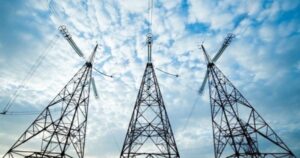
A EUR100 million grant agreement has been signed by Volodymyr Kudrytskyi, Chairman of the Board of NPC Ukrenergo, and Lorenz Gessner, Head of the Representative Office of the German state development bank KfW in Ukraine, the company said.
According to its Telegram post on Friday, the signing took place in Kyiv on Thursday in the presence of Deputy Energy Minister Roman Andarak and members of the EU Delegation to Ukraine.
It is noted that the European Commission has authorized KfW to provide Ukrenergo with funds from the EU’s special budget program Ukraine Investment Facility and to ensure the financing and implementation of a number of priority energy projects.
These include the modernization of high-voltage substations in the western regions of Ukraine and the development of interconnectors connecting it to the power system of continental Europe, as well as the repair and restoration of equipment destroyed or damaged by Russian shelling at high-voltage substations, and the purchase and supply of new equipment.
In addition, part of the funds should be used to strengthen the physical protection of Ukrenergo’s substations.
NPC noted that this grant is the second phase of the target program “Reconstruction and Restoration of Ukraine’s Electricity Transmission Infrastructure”, as the company signed an agreement with KfW on the first phase of the program worth EUR 15 million at the Berlin Conference on the Restoration of Ukraine-2024 in June.
In total, since the beginning of the full-scale war, Ukrenergo has attracted EUR324 million with the support of KfW, and the total amount of international assistance attracted amounted to EUR1.5 billion, the NPC summarized.
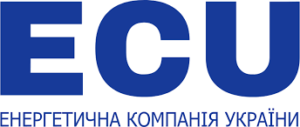
State-owned energy trader Energy Company of Ukraine (ECU) has transferred UAH 100.4 million in dividends to the state budget of Ukraine based on the results of its operations in 2023.
In a press release on Monday, the company said that by doing so, it became the first company to make such payments among all enterprises managed by the State Property Fund (SPF) of Ukraine.
“Today, our primary focus is to ensure reliable supply of electricity to Ukrainian consumers in the face of energy shortages. To this end, we are increasing imports, developing cooperation with electricity producers, and launching new products and services. At the same time, our activities create new sources of revenue for the state in a very difficult period for the Ukrainian economy,” commented Vitaliy Butenko, CEO of ECU.
According to Vitaliy Koval, Head of the SPFU, ESU demonstrates how state assets can work and generate significant profits for the state, and the dividends paid by the company will be a significant contribution to the state budget, which, in particular, finances the Ukrainian Defense Forces.
The company noted that the amount of dividends paid by it in the first five months of commercial activity in 2022 amounted to UAH 27.1 million.
As reported, Energy Company of Ukraine JSC is a national energy trading company established in the summer of 2022 that carries out operations for the purchase, sale and supply of energy resources, in particular through import and export operations.
“The company is one of the top 5 traders in Ukraine in terms of electricity sales and founded the first state-owned balancing group of electricity market participants, currently the second largest in Ukraine. The company is 100% owned by the state.
In 2023, the net profit of the company amounted to UAH 148.9 million, which is more than four times higher than in 2022, and contributions to the state budget amounted to UAH 209.4 million.
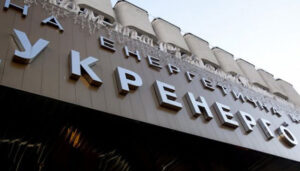
The Cabinet of Ministers of Ukraine has approved the payment of UAH 207.883 million in dividends by NPC Ukrenergo, which is 90% of the company’s consolidated profit for 2023, reduced by the amount of income from the distribution of cross-border crossing capacity last year.
The relevant decision is enshrined in the Resolution of the Cabinet of Ministers No. 589-r dated June 28, 2024, the text of which is published on the government portal.
Earlier, Volodymyr Kudrytskyi, CEO of Ukrenergo, reported that the NPC received about UAH 400 million in profit for UAH 83 billion in revenue in 2023.